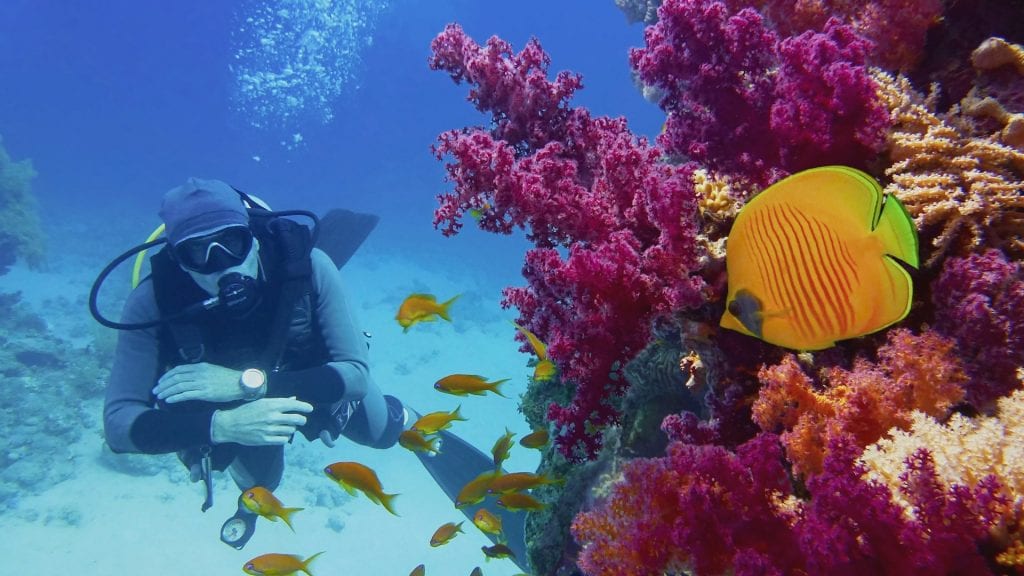Coral reefs are diverse ecosystems, sometimes referred to as “rainforests of the sea.”
Approximately 25% of the ocean’s fish depend on the coral reefs for shelter, food, or reproduction. In addition, healthy coral reefs are critical in protecting the coastlines from the damaging effects of wave action and tropical storms.
Over the last several years many scientists have begun to suspect that certain ingredients in common sunscreen products may damage coral reefs through a process known as coral bleaching. The process of coral bleaching occurs when stressors such as increased ocean temperatures or pollutants cause algae to leave the coral tissue. Without algae for protection, the coral loses its major source of food and turns pale. This results in coral that is much more susceptible to disease and death.
In July of 2018, Hawaii became the first U.S. state to ban the sale of sunscreens containing two common chemicals; oxybenzone and octinoxate.
These two compounds are the main ingredients of commercially available sunscreens that have been implicated in coral bleaching and damage to the reefs. Many other states and cities (as well as large retailers, such as REI) have either banned these products or are looking at legislation to prevent their use.
As with many issues relating to sunscreen, the true impact these chemicals have on the coral reef environment is a source of controversy within the scientific community. Most agree that there is likely some impact, but there is a wide range of opinions regarding what that actual impact is. These are very difficult things to test, and much of the work in this area has been done in controlled laboratory environments – not in the actual ocean.
After much research and thought on the topic, here is what I gather. The degradation of coral reefs appears to be multifactorial. Climate change, non-sunscreen related ocean pollution, and overfishing likely contribute to coral bleaching far more than regular sunscreen use by beachgoers and snorkeling enthusiasts.
Nevertheless, the science appears to show that there is at least some impact of chemical sunscreens on coral reefs.
For this reason, I feel it is reasonable for this to be a viable environmental concern. With many alternative options available, why not try to avoid using these products when swimming in the ocean?
Physical sunscreens (those containing zinc oxide and titanium dioxide) don’t appear to have quite the same impact on the health of coral reefs. Better yet, sun-protective clothing with an ultraviolet protection factor (UPF) of 50 or higher certainly does not pose any threat to the coral. In addition, clothing is far more practical as there is no need to worry about reapplication of sunscreen due to it washing off in the water or evaporating throughout the day.
Until next time,
-Dr. Greg Barron, M.D.

